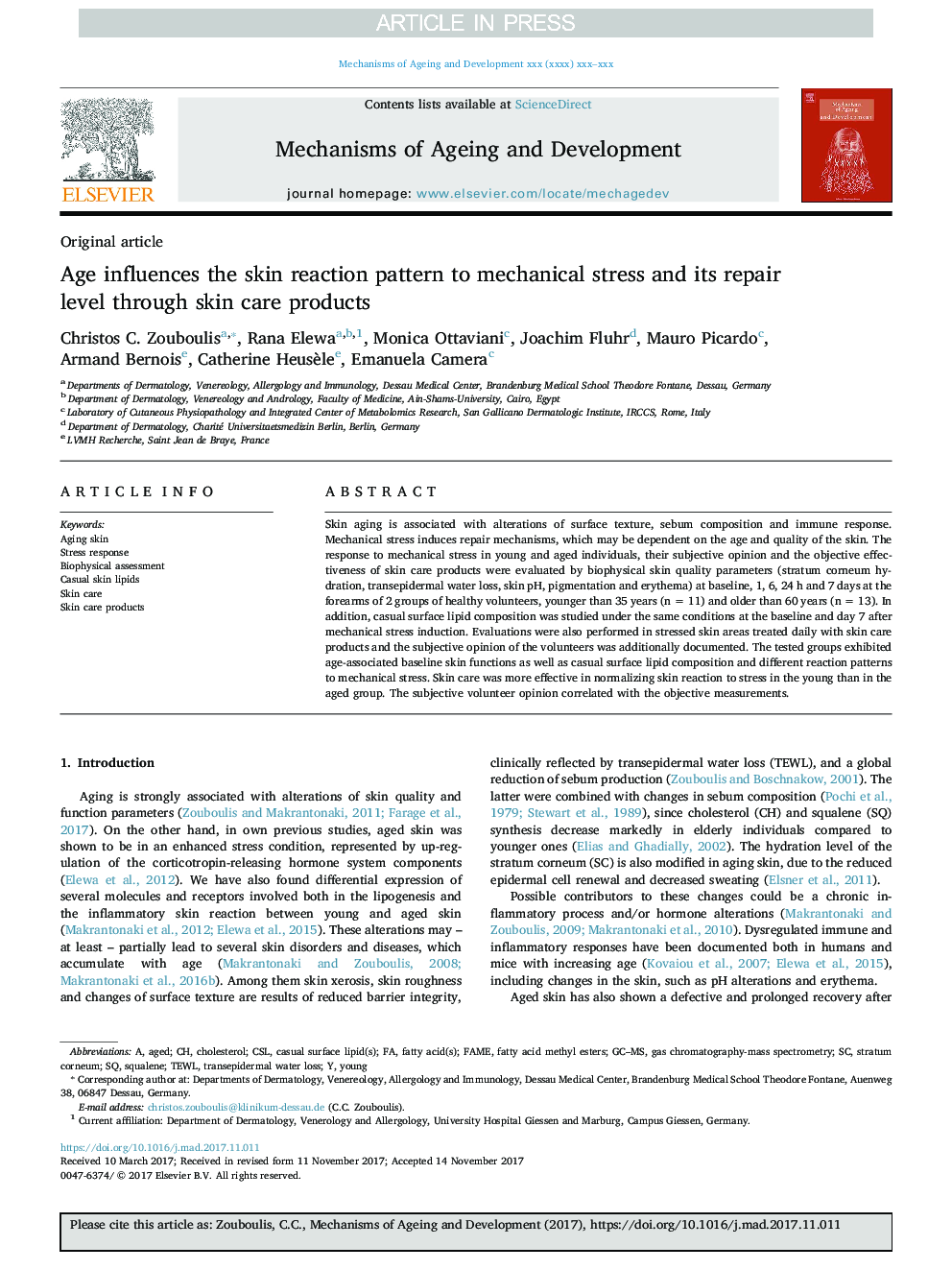| Article ID | Journal | Published Year | Pages | File Type |
|---|---|---|---|---|
| 8284721 | Mechanisms of Ageing and Development | 2018 | 8 Pages |
Abstract
Skin aging is associated with alterations of surface texture, sebum composition and immune response. Mechanical stress induces repair mechanisms, which may be dependent on the age and quality of the skin. The response to mechanical stress in young and aged individuals, their subjective opinion and the objective effectiveness of skin care products were evaluated by biophysical skin quality parameters (stratum corneum hydration, transepidermal water loss, skin pH, pigmentation and erythema) at baseline, 1, 6, 24 h and 7 days at the forearms of 2 groups of healthy volunteers, younger than 35 years (n = 11) and older than 60 years (n = 13). In addition, casual surface lipid composition was studied under the same conditions at the baseline and day 7 after mechanical stress induction. Evaluations were also performed in stressed skin areas treated daily with skin care products and the subjective opinion of the volunteers was additionally documented. The tested groups exhibited age-associated baseline skin functions as well as casual surface lipid composition and different reaction patterns to mechanical stress. Skin care was more effective in normalizing skin reaction to stress in the young than in the aged group. The subjective volunteer opinion correlated with the objective measurements.
Keywords
Related Topics
Life Sciences
Biochemistry, Genetics and Molecular Biology
Ageing
Authors
Christos C. Zouboulis, Rana Elewa, Monica Ottaviani, Joachim Fluhr, Mauro Picardo, Armand Bernois, Catherine Heusèle, Emanuela Camera,
